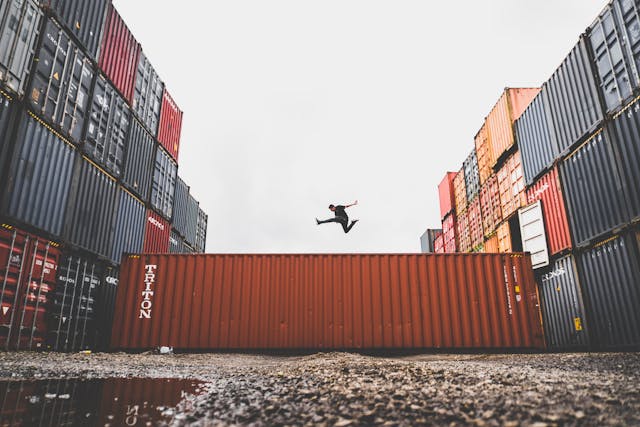Full analysis of International terms: Incoterms 2020 Common Terms Comparison Guide How to choose FOB/CIF/DDP?
 2025-03-21
2025-03-21
 41
41
International terminology is like the "traffic rules" of the foreign trade industry. Every time you talk about orders with foreign customers, you can always hear mysterious codes such as FOB and CIF. As a foreign trade veteran who has been in the industry for eight years, today I will use vernacular to help you understand these International "slang".

The latest edition of Incoterms 2020 formulated by the International Chamber of Commerce is like a globally accepted "responsibility division manual", which divides 11 types of transaction terms into four camps. The most commonly used ones are the five brothers EXW, FOB, CIF, CFR, and DDP, each of which represents a different responsibility allocation scheme.
Take a practical case: Last year, our EXP machinery and equipment went to Germany, and the customer insisted on using DDP terms. This means that we are responsible for transporting the equipment to the gate of the other factory, and even the import duty of German customs has to be paid. Although I made a 15% more profit, I almost got stuck because of EU environmental certification during customs clearance-this is the risk point that needs to be considered when choosing terms.
★ Comparison guide of five commonly used terms ★
1 ️ ⃣ EXW (ex-factory):
Just like Taobao's "door-to-door Self" service, the buyer calls a car to the factory to pull goods. It is suitable for small exporters who are just starting, but be aware that the buyer may ask for customs declaration on behalf of him, and then the risk boundary becomes blurred.
2 ️ ⃣ FOB (Delivery at Port of Shipment):
Most like the "Cargo Payment" model. We send the goods to Shanghai Port for shipment, and the freight and risk afterwards belong to the customer. However, there was a moth during the epidemic: the customer's cargo ship was delayed, resulting in an additional storage fee of US $20,000. This gray area needs to be agreed in the contract in advance.
3 ️ ⃣ CIF (CIF):
It is equivalent to "free shipping insurance" service. Not only do we have to pay for shipping, but we also have to insure the goods. I remember that the typhoon caused damage to the goods last year. Fortunately, we took out WPA insurance under the CIF clause, which helped customers recover 70% of the losses.
4 ️ ⃣ CFR (cost plus freight):
The difference from CIF is like "free shipping without insurance", which is suitable for customers who are familiar with transportation routes. There is a trick: if the value of the goods exceeds US $100,000, it is recommended to take the initiative to upgrade to CIF, and the extra premium can be exchanged for customer trust.
5 ️ ⃣ DDP (Duty Paid Delivery):
It can be called the ceiling of "one-stop service". We used DDP terms to help customers in the Middle East pay 5% value-added tax. As a result, we gained a price advantage in the local market, and the customer directly renewed the three-year exclusive agreement.
[Golden Rule of Choosing Terms]
✅ Depend on the shipping method: choose FOB/CIF by sea, railway or air freight first FCA
✅ ratio market position: strong sellers can push CIF, and buyers' markets often use FOB to lower prices
✅ Check policy restrictions: Brazil and other South American Country mandate CIF imports
✅ counts hidden costs: EXW seems to save trouble, but subsequent dispute resolution costs may be higher
Recently, I helped a customer deal with a typical dispute: the Korean buyer appointed a freight forwarder according to FOB terms, but the packaging was found damaged when the goods arrived in Busan. Because the risk is transferred at the time of shipment, the buyer can only admit that he is unlucky in the end. It also reminds us that term choice directly affects risk-taking.
It is recommended that novice sellers collect this quick look-up table:
Novice to shipping → FOB is preferred
High-value products → Required CIF
Special Markets → Consider DDP
Temporary Order → Available EXW
Remember, International terminology is not a fixed formula, but a bargaining chip. Last month, I just won a new customer in Canada with CIF + DP payment method, which not only controlled the logistics cost, but also reduced the collection risk through letter of credit. Flexible combination of these terms can increase the profit of foreign trade orders by more than 20%!























